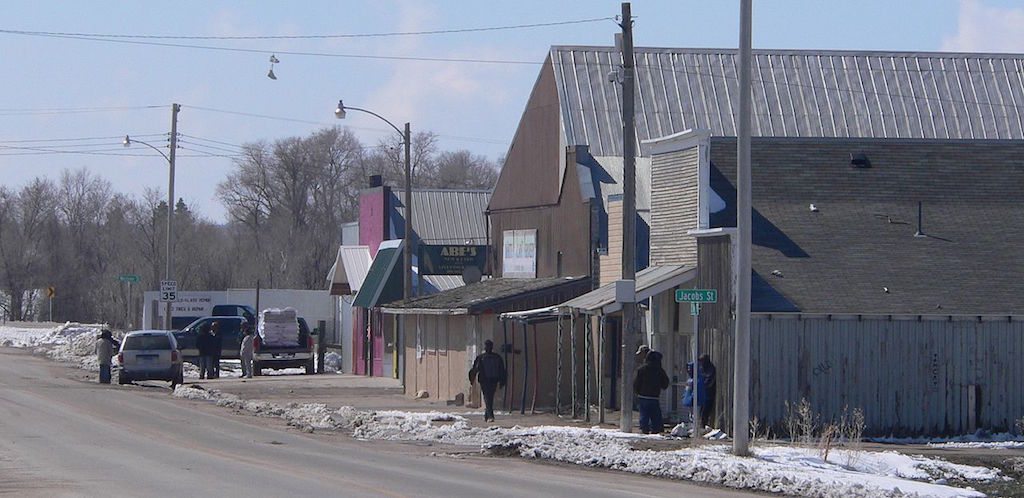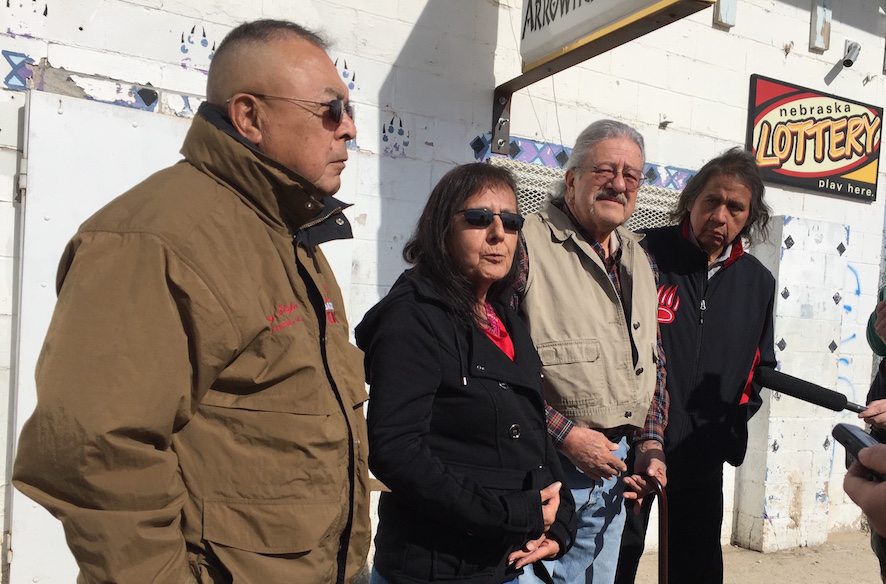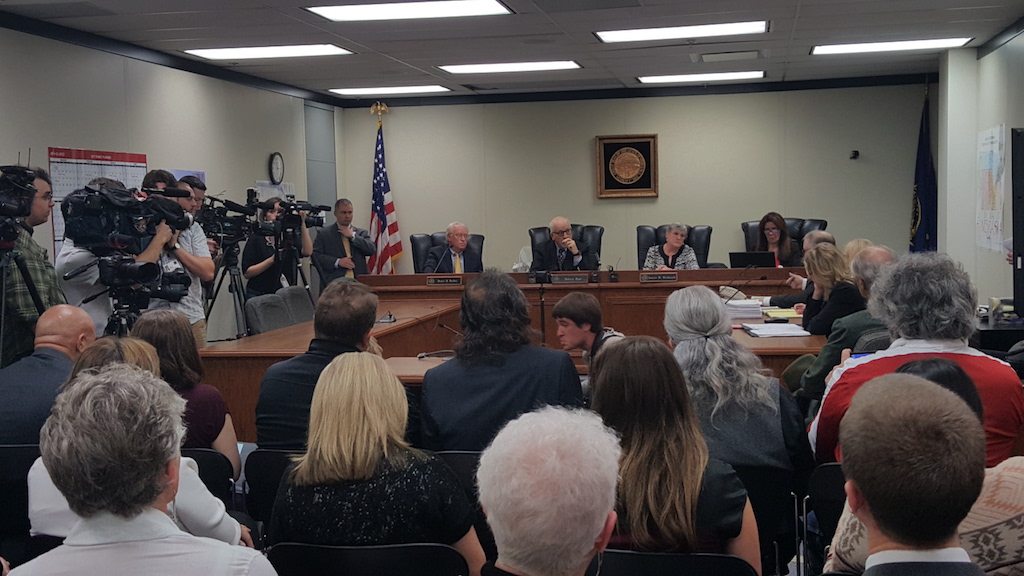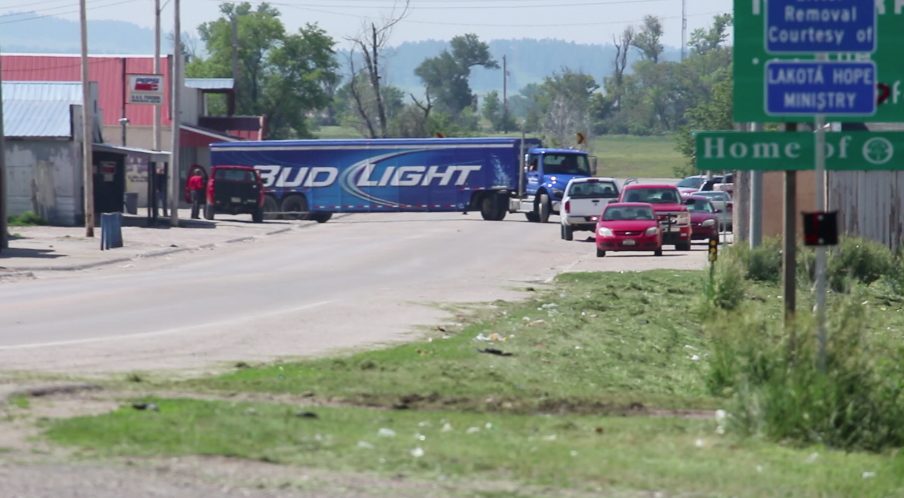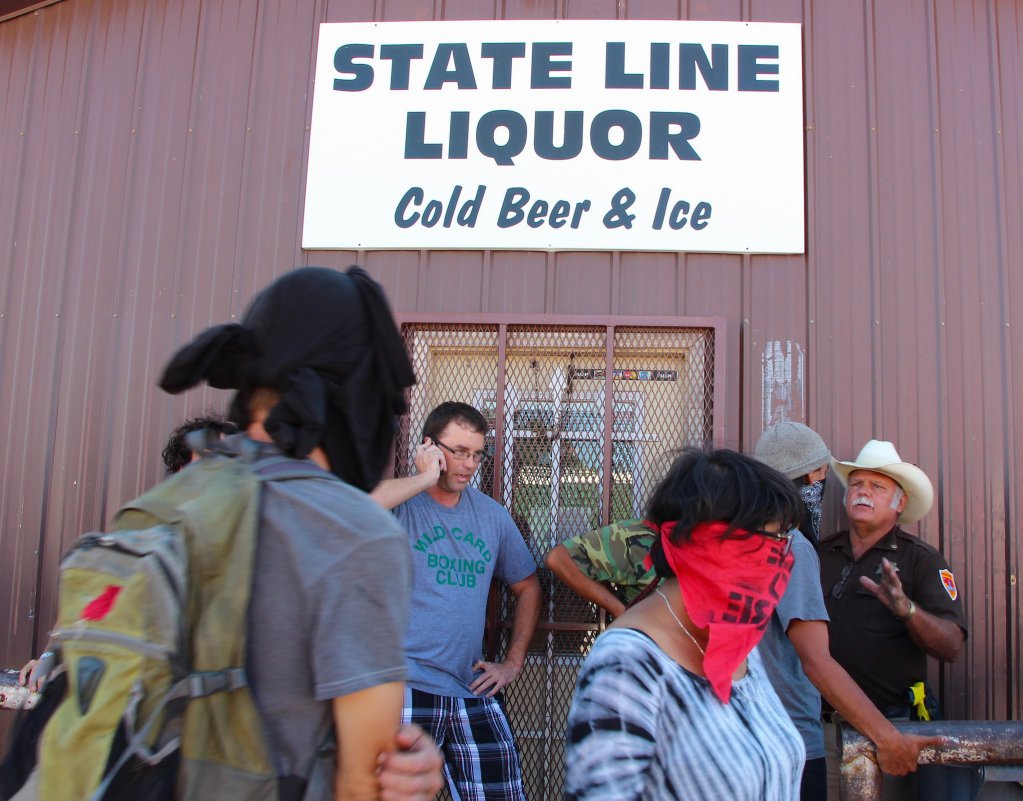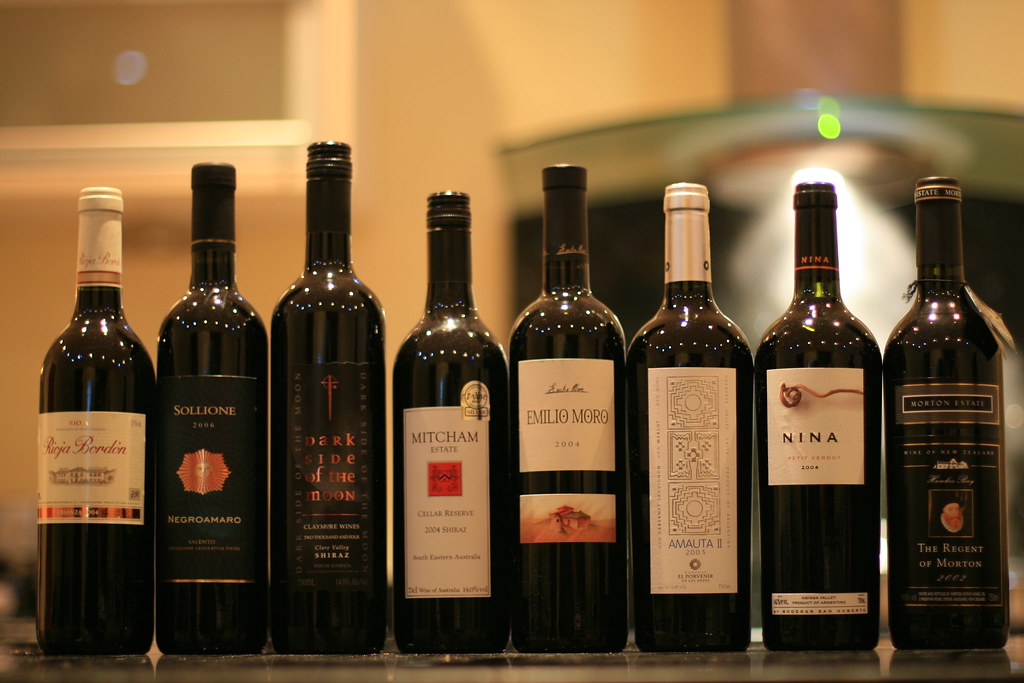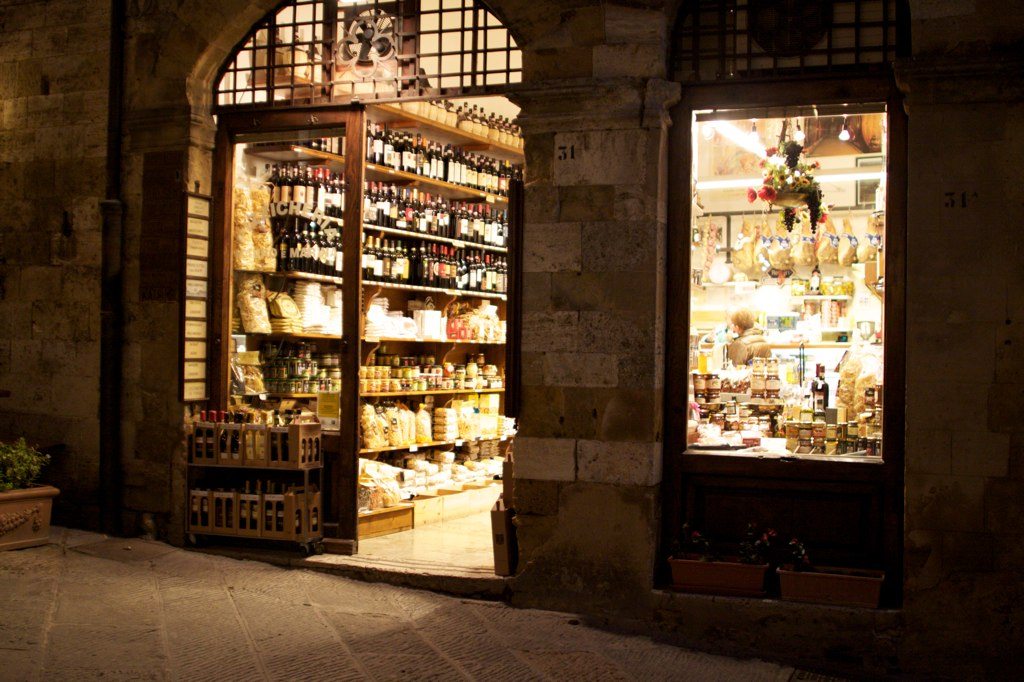UPDATE APRIL 28, 2017, 11:14 a.m., EST: After this story was published, the Nebraska Attorney General’s office appealed Judge Jacobsen’s decision. Under Nebraska law, that means his decision will be postponed for six months. The stores must close as planned on Sunday. Meanwhile, the appeal will be heard by the Nebraska Supreme Court or the Court of Appeals. Read more at the Lincoln Journal Star.
Last week, we reported that Nebraska’s Liquor Control Commission had voted unanimously to prohibit the renewal of liquor licenses for four beer stores in the unincorporated village of Whiteclay, Nebraska—a town of seven people. In a surprising reversal, District Judge Andrew Jacobsen on Thursday vacated the commission’s decision. The stores, which were scheduled to lose their licenses at the end of the month, will be allowed to remain open.
Those four stores sell about 3.5 million cans of beer per year. Advocates say their customer base comes from the neighboring Pine Ridge Reservation, where alcohol is illegal. Activist Olowan Martinez called alcohol sales to residents of the reservation a “liquid genocide” in a phone call last week, adding that the commission’s decision gave her hope for children of the Pine Ridge. Read our previous coverage on the initial hearing here and the unanimous decision here.
Had the judge not vacated the ruling, the four liquor stores would have closed on Sunday. In his ruling, Judge Jacobsen called the Liquor Control Commission’s decisions “arbitrary and unreasonable,” the Omaha World-Herald reports.
The Nebraska Liquor Control Commission initially denied the license renewal on the grounds that Sheridan County, where Whiteclay is located, did not have adequate law enforcement to keep the stores open. The town employs five police officers, and the police station is located more than 20 miles outside of Whiteclay.
Judge Jacobsen on Thursday ruled that the commissioners did not have the authority to deny the renewal. His ruling said that the “adequate law enforcement” question need only be proven the first time a liquor store applies for a license. After that, it’s the store’s right under the Nebraska constitution to keep its license unless it’s charged with a felony or changes its address.
The liquor stores can now reapply for their licenses online and remain open.
This isn’t the last we’ll hear of the Whiteclay story. The Nebraska Attorney General’s office has filed 22 citations against the four stores, which have yet to be adjudicated. The citations include selling beer for resale, failing to cooperate with investigators, and selling beer after hours. The hearings for those citations are expected to happen this summer, and the results have the potential to close the stores. Again.
